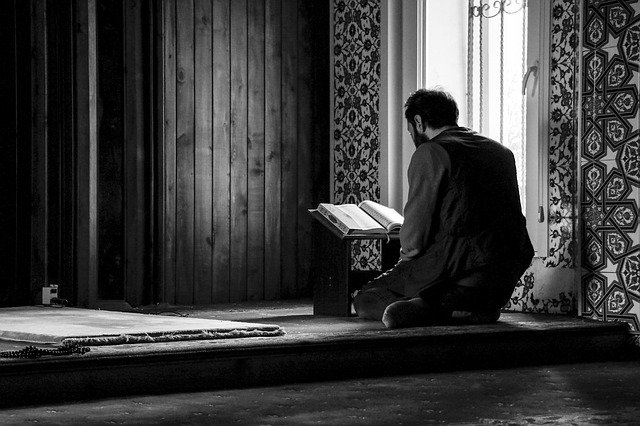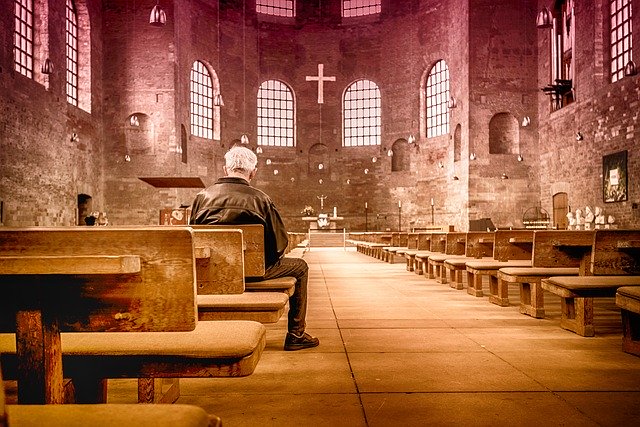by Domenico Bilotti, exclusive for The diagonales
In the history of religions two great dilemmas have imposed themselves, which have naturally expanded in contact with ecclesiastical law and intercultural law: those protean segments of the juridical system which, thanks to multidimensionality and not mere statehood, know, as few do, how to load the norm with new questions. Can a religious rite exist without a people who follow it, live it, participate in it, act on it? And is religion all that provides for a ritual and codified assemblage of predetermined symbols and conduct tacitly known to those who participate in it?

As for the first question, it can be a good track of research to measure oneself against the features of Eastern spirituality and, more generally, with all those forms, even internal to Western Christianity, which reflect on the singular question of the religious rite because they ultimately refer to the existence of an individual notion of discipline. The hermit who hides himself, the monk who prays, the ascetic who governs silence because he lets himself be governed … are they perhaps taking part in a religious rite? Are they part of it? Are they part of it? Loneliness and contemplation also have their rites, and they are rites that need a context. It is therefore obvious that full loneliness, understood as separation, needs, after all, first of all, relationships and contacts. Just as the full community (whether it is called people, nation, ecclesia, or even crowd and mass) can never completely exclude the existence and the need for a thought that is directly of the individual participant, a reaction, an emotion or, even more so, a specific commissive conduct.
As for the second question, it is evident that our historical reality – at least for some centuries – has plastically put on display collective aggregative forms that are certainly ritual, but not for this reason liturgical, in the ecclesiastical sense of the lemma. This has happened even with some political leaderships, basically based on the thaumaturgical adoration of the regent of the State (consider, in this regard, the extensive literature that has dealt in China with the story of Mao’s death as a theological question). It happens with some widely shared consumption practices, those for which it is that type of consumption that determines the adherence to a community, the co-presence to a zeitgeist, perhaps less binding and yet much more reticular than the “spirit of the people”, of an ancestral belonging of blood and land to the volksgeist.

We can, therefore, conclude that there are forms of religious rite that do without the people of the faithful, but even in those cases continue to refer to the existence of an ethical-cultural context (of a sensus fidei) that cannot do without the idea of relationship.
Likewise, we can conclude that not all symbolic aggregations that imply an agreed upon subjection to a rite or a code are therefore only religious, but that even these are linked to the correct etymology of the word religion. In this case, the millenary distance between Cicero’s proposal, which makes religion derive from the Latin relegation in the sense of “retracing” and “collecting”, and Tertullian’s proposal, according to which religion is a consequence of religoing the human being to certain practices, fades to zero. Aren’t the one and the other meaning the effect of a sociality of the species, of a law, whether this is contained in an anthology of icons or in a selection of provisions?
The lockdown and the persistent, moreover well-founded, fear of a new wave of epidemic, with consequent hypotheses of new blockages and new panic and anxiety, have brought back to our attention both the questions with which we started these considerations.
The anthropology of the rite must ask itself whether to sacrifice or re-discipline the presence of the people by placing itself in the interest of the latter, safeguarding their necessary participation in the destinies of the world. And likewise, all the social rites of our identity are suspended today, amidst irritated recklessness and unfulfilled fears, and both empty them of the sense that we used to attribute to them.
In the limbo of time, in the time needed to produce the effects, it is difficult to demand neutrality from consciences. On the contrary, the quality of their militancy in the present will be the only possibility of their future.

Domenico Bilotti collaborate with The diagonales. He is adjoint professor of “History of Religions” at the Magna Graecia University of Catanzaro (South Italy) and holder of courses at the Master’s in “Cultural Heritage and Ecclesiastical Heritage” of the same university. The rest of the time he observes, reads, travels, attends soccer stadiums.





